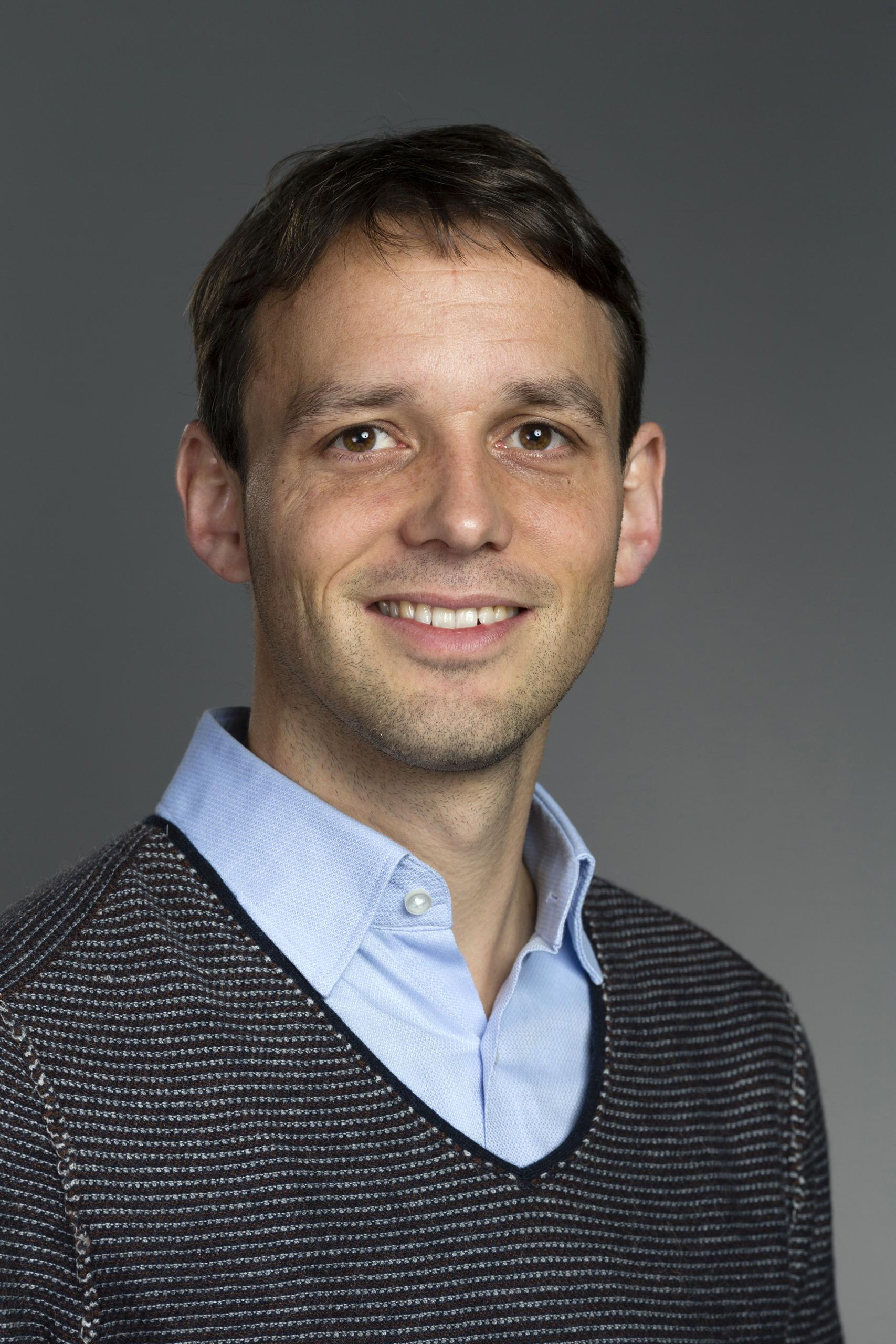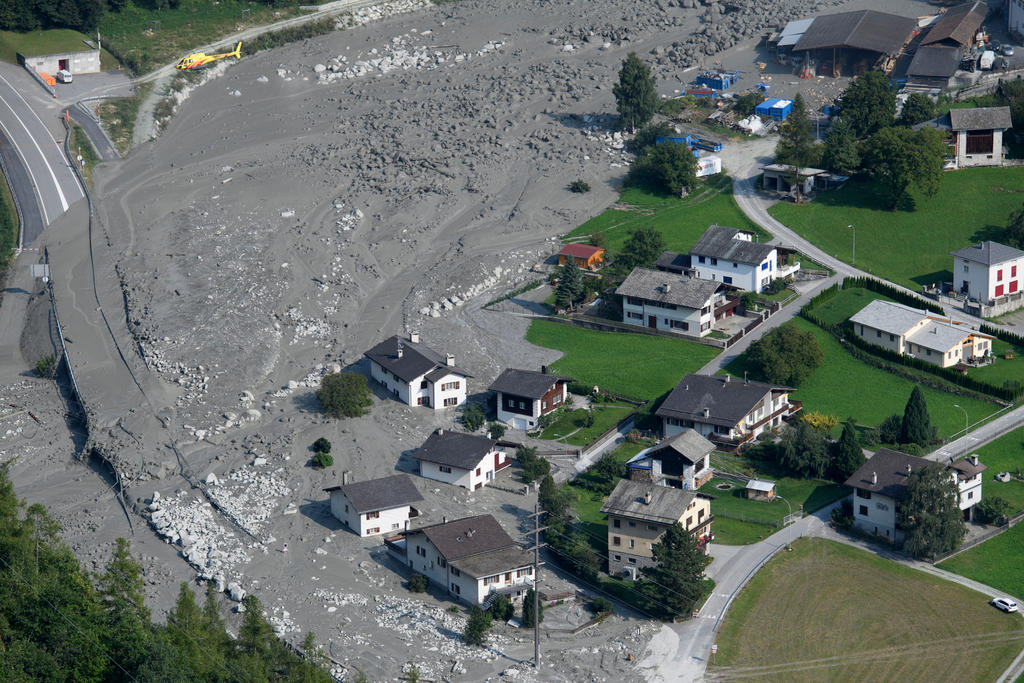Climate change is a reality we need to confront; so is denialism
Global warming is real, but there are five phases of denial among those who question it, explains a political scientist from the University of St Gallen.
The three major scientific reports about global warming that came out this year were truly alarming. In October, the Intergovernmental Panel on Climate Change (IPCC) reported that limiting the global average temperature to 1.5 degrees Celsius above pre-industrial levels would save us a lot of trouble.
Yet it also warned that the international community has increasingly lost sight of the goal it agreed to in Paris. To reach it, CO2 emissions would need to drop by 45% by 2030 and reach net zero by about 2050. But if states continue business as usual, the 1.5-degree limit will only be reached between 2030 and 2052.

In November, the US National Oceanic and Atmospheric Administration (NOAA) followed up with its national climate assessment. Prepared by 13 different federal agencies, its conclusions were no less clear. Climate change generates new risks and reinforces existing vulnerabilities, and it threatens significant losses for infrastructure and property.
Finally, a little more than two weeks ago, the World Meteorological Organization (WMO) reported that the 20 warmest years ever recorded have all occurred in the last 22 years; that the global average temperature in 2018 was about one degree above pre-industrial levels; and that the concentration of greenhouse gases has once more reached new record levels this year.
The phases of denial
All three reports show that global warming is a reality. But so is deliberate climate denialism – the overt and sometimes covert activities of those seeking to undermine scientific consensus about the causes and consequences of global warming. While proponents of climate denialism consistently negate the need to act in the face of climate science, they have been very flexible with regard to the arguments they have put forward to argue their case.
Historically, climate denialism has gone through five phases. In phase one, the argument was plain and simple: ‘the planet isn’t warming up’. As this proposition could not be maintained for long, phase two emphasised natural climate variability: ‘the planet may be warming up, but hasn’t there always been climate change?’ Global warming was said not to be anthropogenic, and as human activities could not be blamed, there was no need to act. While this second phase of denialism still has some supporters today – among them the current US president – climate science has made it very clear that we can only explain the patterns of temperature rise after 1850 if we take carbon emissions resulting from industrialisation into account.
When scientific evidence made phase two denialism increasingly untenable, denialists thus shifted to a third set of arguments. Global warming may be happening, they conceded. It might also be due to our own CO2 emissions. But if it allowed us to grow pineapples in Russia, then perhaps there are associated benefits as well as costs. Once more, however, the science was clear. IPCC reports, the Stern report, the Millennium Ecosystem Assessment (MEA) and many other studies have consistently shown that the costs of human-induced climate change would massively outweigh any benefits global warming might have.
Lack of consensus
Phase four denialists targeted the integrity of the scientific community itself. Their campaigns, which focus on the argument that non-consensus and debate is essential to science, have paid off. But this argument fundamentally confuses climate science with the IPCC, which is not a scientific conference, but an international body tasked with summarising the existing consensus – or lack thereof – in the field of climate research.
States have asked the IPCC to inform them about what is known and what is not known about the causes and likely consequences of global warming.
To put it bluntly: while we hold contestation to be central to any scientific endeavour, we do not normally question physics, because physicists no longer argue over the laws of gravity; we do not normally question economics because economists agree that there is a link between demand, supply and prices of goods in a market.
This leaves us with a fifth phase. The arguments presented here are best described as ‘sceptical’; not ‘denialist’. Those who subscribe to it accept that climate change is real, that it is anthropogenic and that it its bad. Yet, they hold, many other things are bad, as well. So why should global warming come first?
Science can’t replace politics
This argument raises an important issue. Based on the assumption that political attention is a scarce resource, it points out that global warming attracts a lot of that attention while other global challenges like malaria or the loss of biological diversity fall by the wayside. Which challenge ought to be tackled with priority, however, is a deeply political question that cannot be answered by science.
I do think this last argument is important. Science cannot replace politics and accepting a responsibility to respond to global warming should not mean we can forget about our responsibilities elsewhere. But climate change is different in that, based on everything we know so far, it will act as a catalyst for many, if not most, other threats humanity confronts. For example, if health challenges like malaria expand, that will not affect climate change a great deal; but if global warming increases, health challenges like malaria will expand further.
If this argument is true, there are good reasons to tackle climate change first. Doing so would not only honour the principled idea that ‘if we are to err, then let us err on the side of caution’ – an idea the US delegation once espoused in the international ozone talks. It would also prevent the professional deniers from eventually invoking a sixth reason for inaction – namely that, while global warming is both real and bad, it is now too late to do much about it.
The views expressed in this article are solely those of the author, and do not necessarily reflect the views of swissinfo.ch.
swissinfo.ch publishes op-ed articles by contributors writing on a wide range of topics – Swiss issues or those that impact Switzerland. The selection of articles presents a diversity of opinions designed to enrich the debate on the issues discussed.

In compliance with the JTI standards
More: SWI swissinfo.ch certified by the Journalism Trust Initiative










You can find an overview of ongoing debates with our journalists here . Please join us!
If you want to start a conversation about a topic raised in this article or want to report factual errors, email us at english@swissinfo.ch.